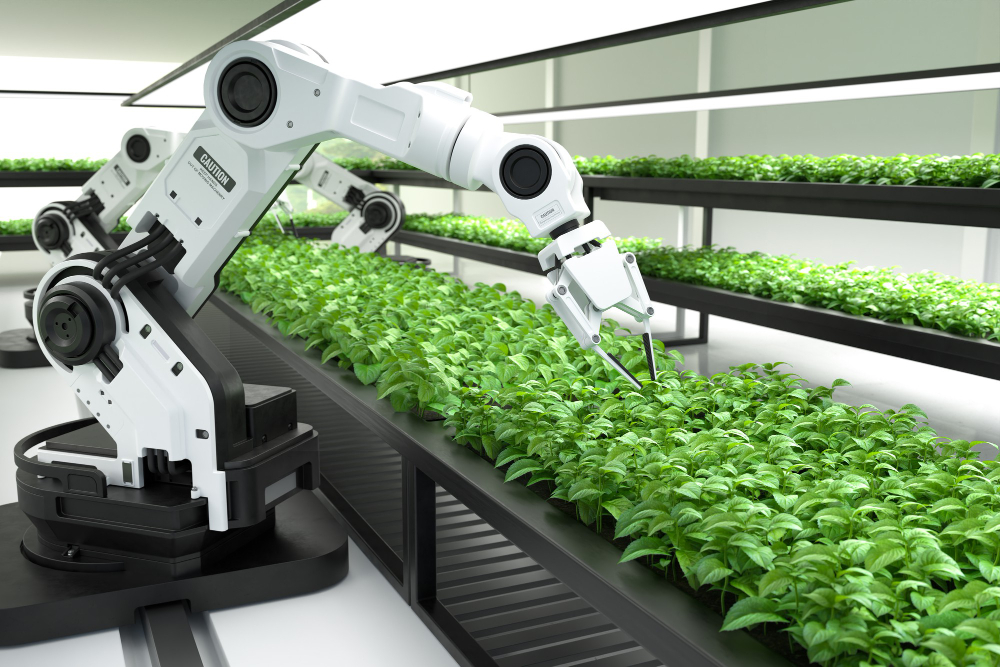Unlocking the Future of Crop Production: The Role of Sustainable and Technological Innovations

As the global population continues to grow and food demand rises, farmers face unprecedented challenges. Crop production, long the foundation of agriculture, now requires a modernized approach that integrates sustainability with cutting-edge technology. The key question is: how can farmers achieve higher yields while preserving the environment? The answer lies in sustainable agricultural practices supported by technological advancements.
Early agricultural methods were simple and served small communities. However, with industrialization and population expansion, farming practices became high-yield and input-intensive. While this led to greater food production, it also caused environmental issues such as soil degradation, water scarcity, and biodiversity loss. Farmers like Luis, managing mid-sized farms, now struggle with the long-term consequences of these methods.
Sustainable crop production ensures productivity without depleting natural resources. Techniques such as crop rotation, cover cropping, and conservation tillage maintain soil health, reduce synthetic inputs, and minimize environmental impact. These practices help retain soil moisture, prevent erosion, and support biodiversity, making them essential for the future of farming.
While sustainability is critical, technology is revolutionizing how farmers manage land and resources. Precision farming allows for data-driven decision-making, optimizing every aspect of crop production.
Key Innovations:
Drones & Remote Sensing: Drones equipped with multi-spectral cameras scan fields, measuring chlorophyll levels to detect nutrient deficiencies or pest infestations before they become visible.
Smart Irrigation: Soil moisture sensors ensure water is applied only where and when needed, reducing waste and improving efficiency.
AI & Data Analytics: AI-driven analytics provide real-time insights, allowing farmers to make informed decisions about fertilizers, pest control, and planting strategies.
For farmers like Luis, implementing remote sensing technology has led to higher yields with fewer wasted resources. By integrating drones and smart irrigation, his farm has reduced water usage by 20% while increasing productivity—showcasing the tangible benefits of technology in agriculture.
Climate change introduces new uncertainties for farmers, making innovations in seed technology more critical than ever. Genetically engineered crops, drought-tolerant seeds, and pest-resistant varieties provide resilience against extreme weather conditions and emerging threats.
Key Innovations:
Drought-Tolerant Seeds: Help maintain yields during dry spells, reducing dependency on irrigation.
Pest-Resistant Crops: Minimize the need for chemical pesticides, promoting sustainable farming practices.
Genetic Engineering: Enhances crop resilience and productivity, ensuring food security.
Luis’s farm has benefited from these advancements, particularly by planting drought-resistant maize and wheat. This has helped maintain profitability even during dry seasons, reinforcing the importance of seed innovation in sustainable farming.
As farmers transition to sustainable, technology-driven agriculture, they require expertise, resources, and technical support. Virtual Delivery Centers (VDCs) provide on-demand access to specialized agricultural consultants, agritech experts, and data analysts, ensuring seamless integration of advanced solutions into farming operations.
How VDCs Support Modern Agriculture:
Expert Guidance: Farmers can consult experts on soil health, crop selection, and pest management without long-term commitments.
Technology Implementation: VDCs facilitate the adoption of precision farming tools, AI-driven analytics, and automation technologies.
Cost Optimization: On-demand expertise reduces operational costs, allowing farmers to scale resources as needed.
Sustainability Strategies: Access to best practices for carbon reduction, water conservation, and regenerative farming techniques.
The future of agriculture lies in the synergy between sustainable practices and technological advancements. Farmers like Luis are demonstrating that high yields and environmental conservation are not mutually exclusive but complementary.
However, adopting these innovations requires the right tools, expertise, and support systems. Platforms like AiDOOS empower farmers by providing access to VDCs, ensuring they have the technology and knowledge necessary to optimize their operations for long-term success. As the world races to feed a growing population while safeguarding the planet, collaboration and innovation will be the driving forces in shaping the next era of agriculture.
Are you ready to optimize your farm’s potential? Explore how Virtual Delivery Centers and AI-driven agricultural solutions can revolutionize crop production today.

For modern telecom enterprises, delivering exceptional QoS is no longer optional—it’s a brand differentiator and a strategic lever for growth. Static provisioning models won’t cut it in a world of hyper-dynamic data usage.